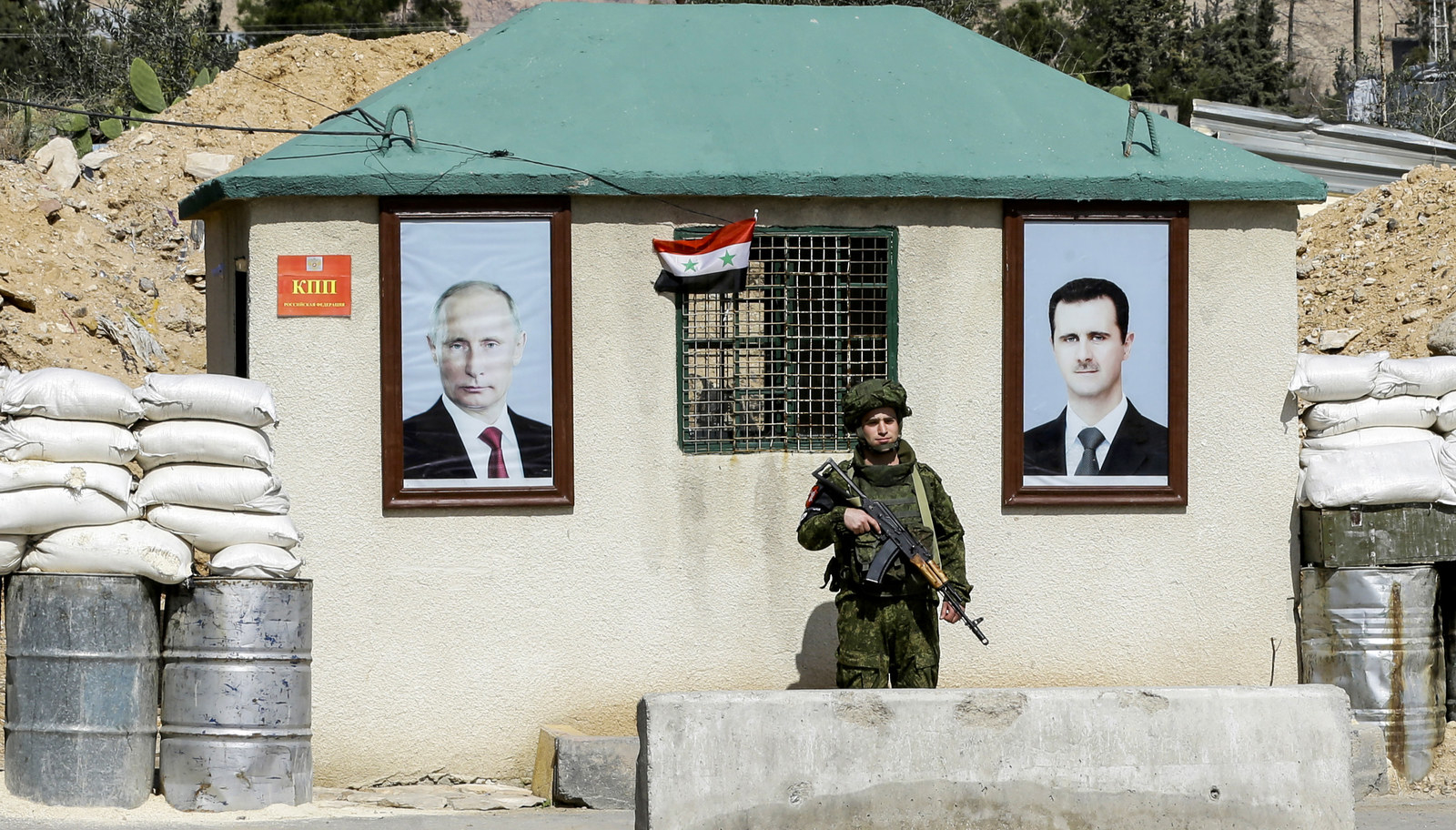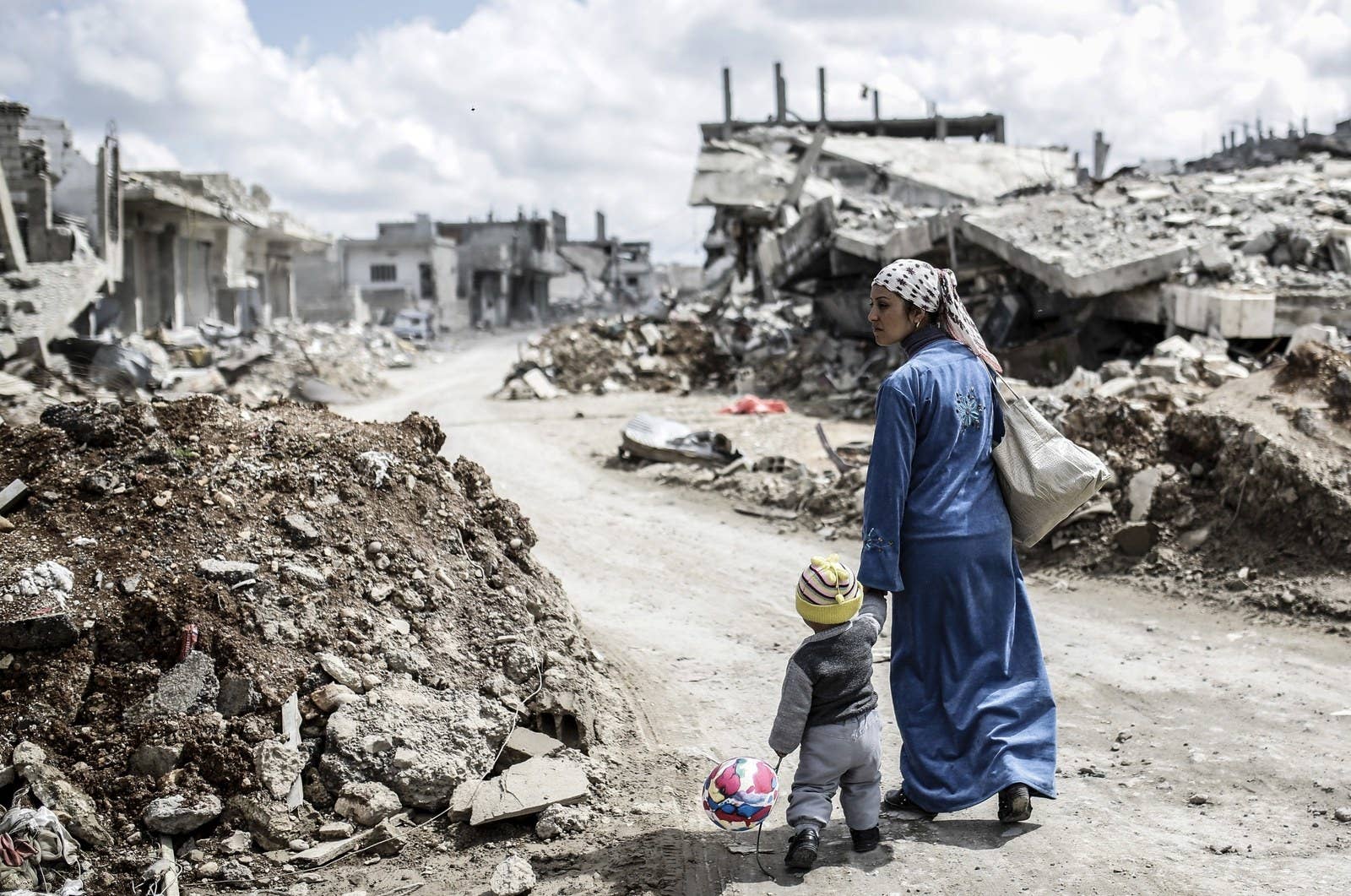
From an almost pitch black underground shelter mostly safe from the bombs, as kids scuffled in the background, 22-year-old Nour Adam filmed himself. “Children eat here, sleep here, and have their life here,” he said. “They don’t have any place to get out. The airstrikes are still in the sky, hitting the buildings and the towns.”
Later, as he has to do every time he wants his videos to be seen by the wider world, he braved more shells to scramble to the roof of the building to get signal and post the video to Twitter, in a process he has repeated hundreds, possibly thousands of times. He hashtagged his tweet “#IAmStillAlive.” Adam lives in Douma, Eastern Ghouta, which has been under siege for five years. As the seven-year anniversary of the Syrian civil war approaches, he is asking himself: Is anyone out there still watching?
Global interest in the conflict is waning, and analysis by BuzzFeed News shows the number of shares on Facebook, Twitter, and other social media sites of the most-read stories about Syria in the past two months were a 10th of what they were just over a year ago.
“When I take a photograph or a video and post it on my Twitter I really hope that someone will really help us, and really see what is happening here in Ghouta,” Adam, a journalist and activist said, speaking to BuzzFeed News from a roof in the city of Douma. “I work so hard to try and post videos, but no one cares. I don’t know what to say. They just see the article or report, and just say: ‘Oh, that’s really sad.’ And after that they turn the internet off and go and live their lives.”
“It’s like death,” he added. “You work and work and work to help people here and to help us but no one feels anything, and no one will act for our suffering.”
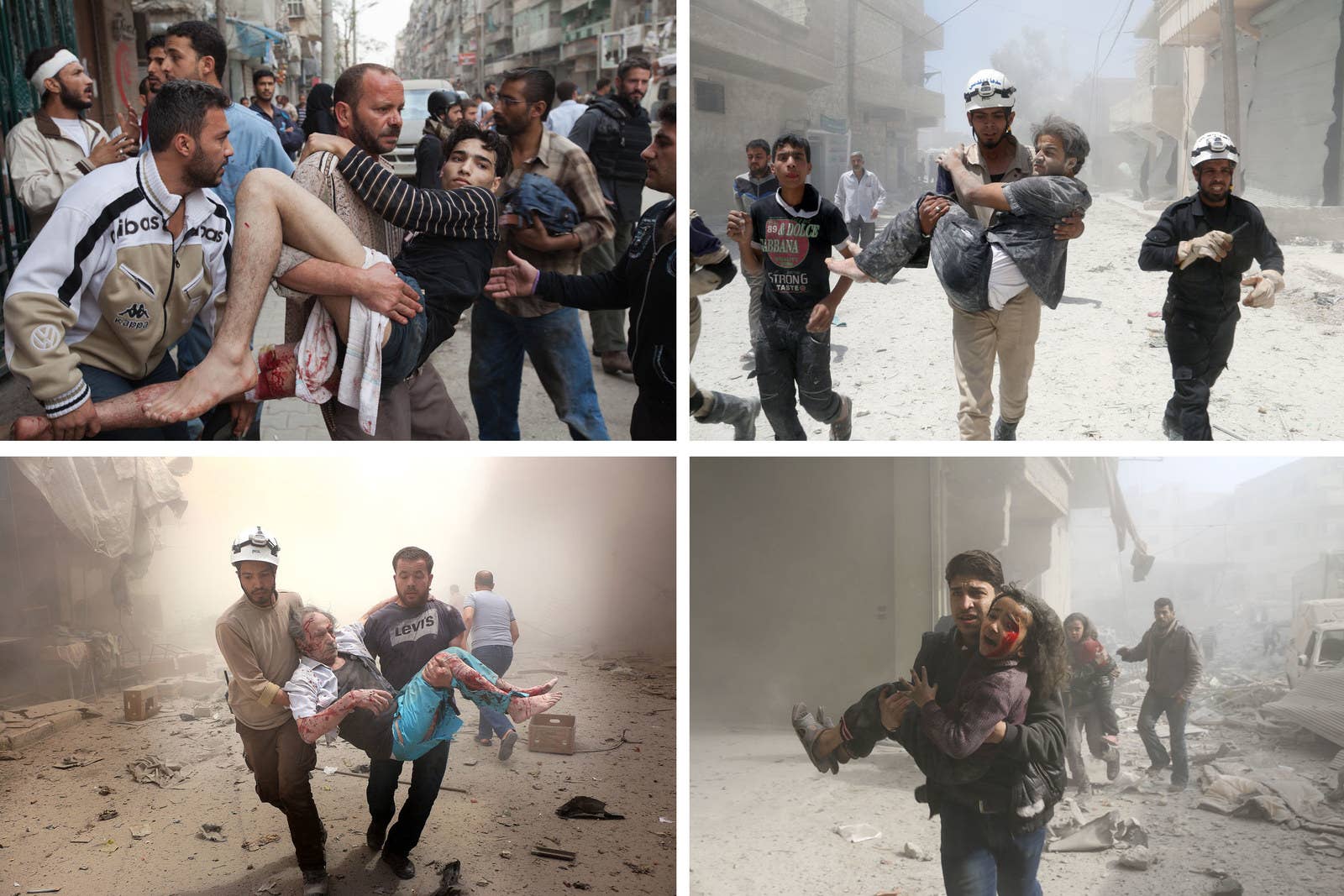
Adam is just one of many Syrians who spend their spare waking moments speaking to Western journalists, trying to explain what it is like being on the ground as the bombs fall.
Once the footage is online people like Ethar El-Katatney, executive producer of AJ+, pick it up, and try to work out how they can tell the next story from Syria.
“All of the footage I am looking at today looks the same as the footage I saw a year ago and it’s the same dust, and blood, and screaming, and hospital rooms and hospital floors,” El-Katatney told BuzzFeed News. “It has become normalized.”
El-Katatney, speaking by phone from New York, has covered the conflict from her newsroom since the revolution began in 2011. She recently tweeted her frustration at seeing such similar images again and again, and the difficulty in getting people to care about the situation.
I just saw 3 seconds of a Syrian boy, covered in blood & dust, crying out for his dead father. Immediate tears. It isn't normal to be witnessing this every day. It just isn't. 100 dead today. And as a manger of a newsroom, I still don't know how can I possibly make people care.
El-Katatney was surprised by the number of nonjournalists who reacted to her tweet: “People are feeling helpless, they are feeling [that] it is not that we don’t care — it’s that we just can’t do anything.”
The failure of the United Nations and other international efforts to stop the war, or even present a credible timeline for an end to the fighting, can feel like a huge shadow over any humanitarian efforts to mitigate the effects of the conflict. And after seven years, the conflict is getting only more entrenched and complicated.
“We have hit a ceiling in shocking people,” El-Katatney said. “From [a] pool of blood, or a dying child, and now people have come across severed limbs, decapitation. I don’t think there is anything that I can show that will shock anyone, no matter what it is.
“There is nothing that won’t surprise anyone, or shock anyone into anything.”
This may be true.
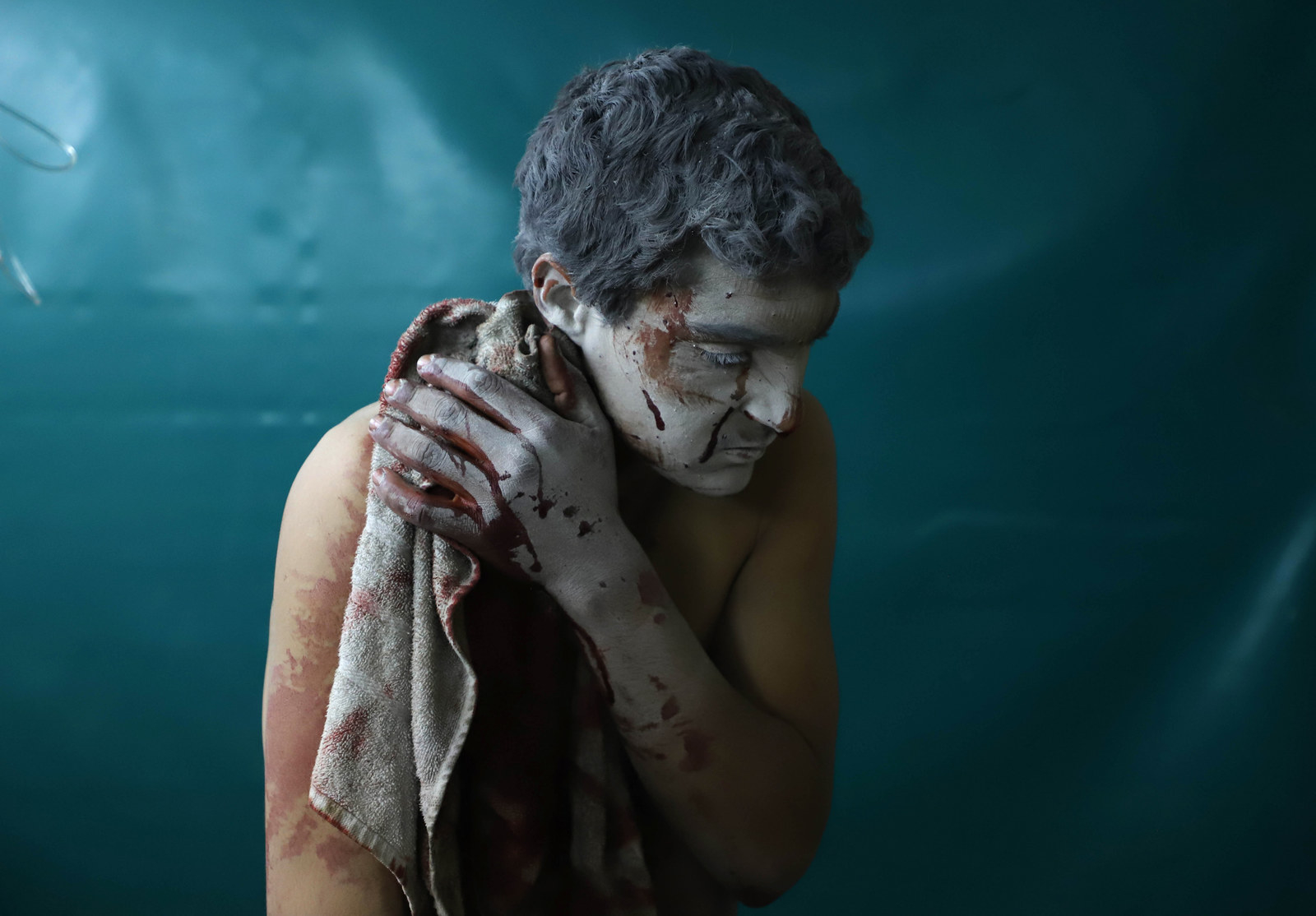
BuzzFeed News analysis, using the social media monitoring tool BuzzSumo, found that the number of shares on the most-read stories about Syria — across all publishers — has fallen dramatically in little over a year.
Comparisons are difficult, partly due to fluctuations in the intensity of the conflict, and also owing to Facebook’s recent algorithm change at the end of 2017. Nevertheless, the figures are stark.
In the final two months of 2016, as the four-year siege of the rebel-held city of Aleppo ended in brutal fashion, the four more-shared stories were all shared more than 300,000 times. The best performing story (about how people could help civilians trapped in Aleppo) was shared more than half a million times, almost entirely on Facebook.
However, in January and February this year, as the Syrian regime and Russian forces bombarded the enclave of Eastern Ghouta, the most viral piece across all publishers (a BBC News article about children struggling to survive) was shared just 42,000 times.
Just deeply disheartening to see readership numbers drop whenever we do a Syria story in the newsletter. Like clockwork.
Paul Slovic, who leads research on the public’s failure to respond to mass tragedies, said that people seem to show less interest in Syria because human brains are incapable of coping with prolonged catastrophes, a phenomenon called “psychic numbing.”
@SulomeAnderson I do find myself scrolling past photos of dead children in Ghouta, because the pics make me feel so helpless. It's horrible and horrific, but I don't know what I can do about it.
“The ancient structures in our brain evolved to respond very quickly to information that was right in front of us, that we needed to react to to survive,” he told BuzzFeed News by phone from the University of Oregon. “That system of fast thinking through feelings doesn’t scale up — it doesn’t do arithmetic right.”
“In other words, if you see one person in danger or having been killed, you feel very badly. If you see a second person you don’t feel twice as bad,” he said. It gets worse, according to Slovic, because the more death and destruction you see, on social media for example, the more your feelings of empathy actually decreases. “One plus one is less than two,” in this situation, he said.
“We do numb to repeated photographs, just like we numb to increasing numbers of individuals,” he said.
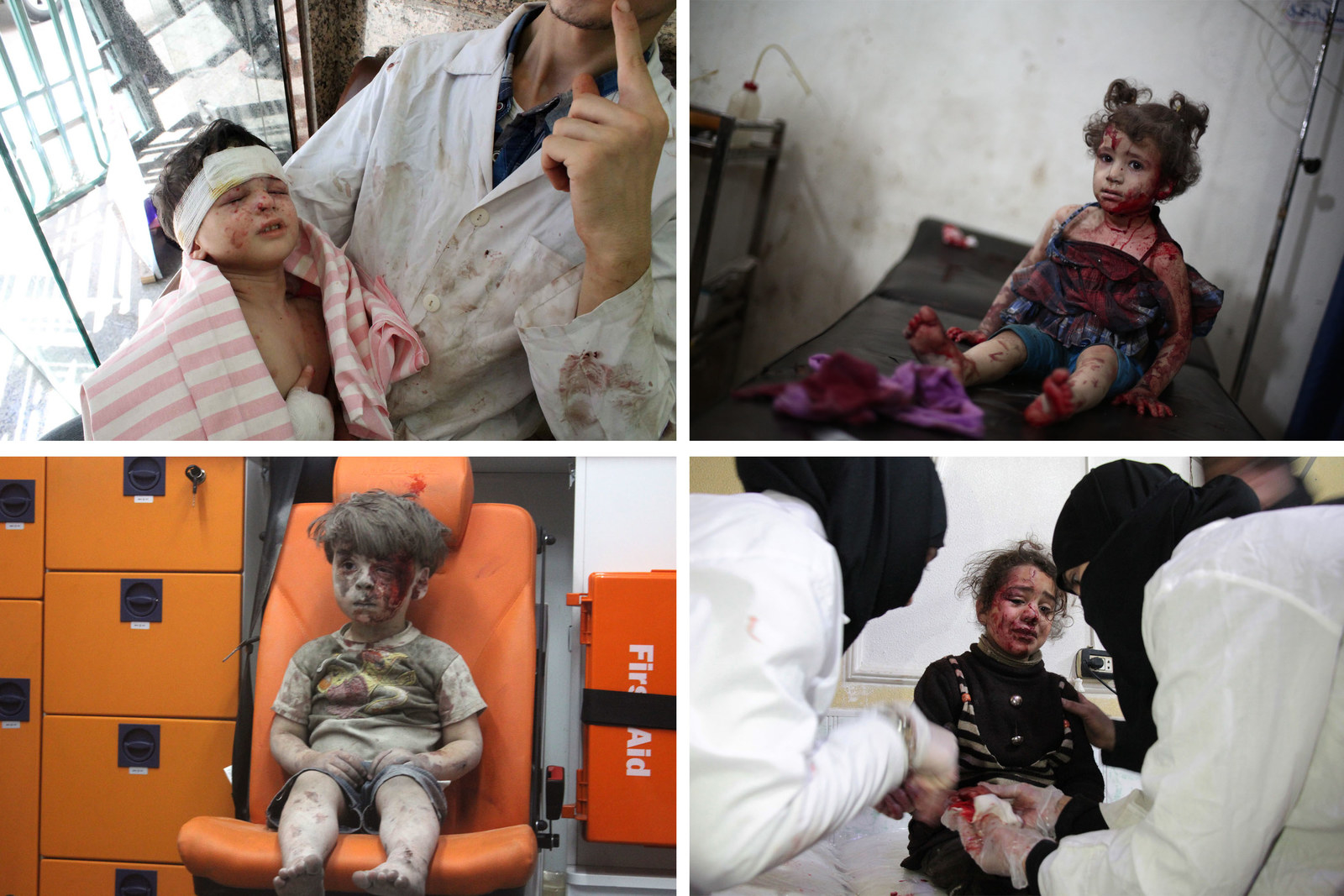
The rate of information, images, and outrage makes it harder to focus on that one important thing.
Echoing some of the findings of Slovic’s research, Syrians say that they’ve struggled to sustain the attention of the international community since the beginning of the conflict on March 15, 2011, when pro-democracy protests were subject to a brutal government crackdown. Since then almost half a million people have been killed, 5 million more have fled the country, and 6 million have been displaced internally.
One of the central stories of the war has been the international community’s failure to end it, or even protect civilians.
The specific UN mission to monitor the conflict was suspended a year into the war because of “escalating violence.” Carla Del Ponte, a veteran of prosecuting war criminals in Rwanda, resigned from the UN Commission to Investigate Syria last year. She said there was culture of total impunity in Syria, and she did not have the backing of the international political community. “That is not acceptable,” she said. Russian UN representatives have repeatedly vetoed resolutions, while Syria’s commissioner, Bashar Jaafari infamously laughed when asked about hospital bombings in Aleppo.
Decisions made by US President Donald Trump’s administration have contributed to keeping the conflict from the international community’s attention. Despite bombing Syria, Trump’s only focus in the country has been ISIS, leaving a vacuum that has been occupied fully by Vladimir Putin’s Russian forces, who have worked together with the regime of Bashar al-Assad to bombard the remaining rebels, like those in besieged Eastern Ghouta.
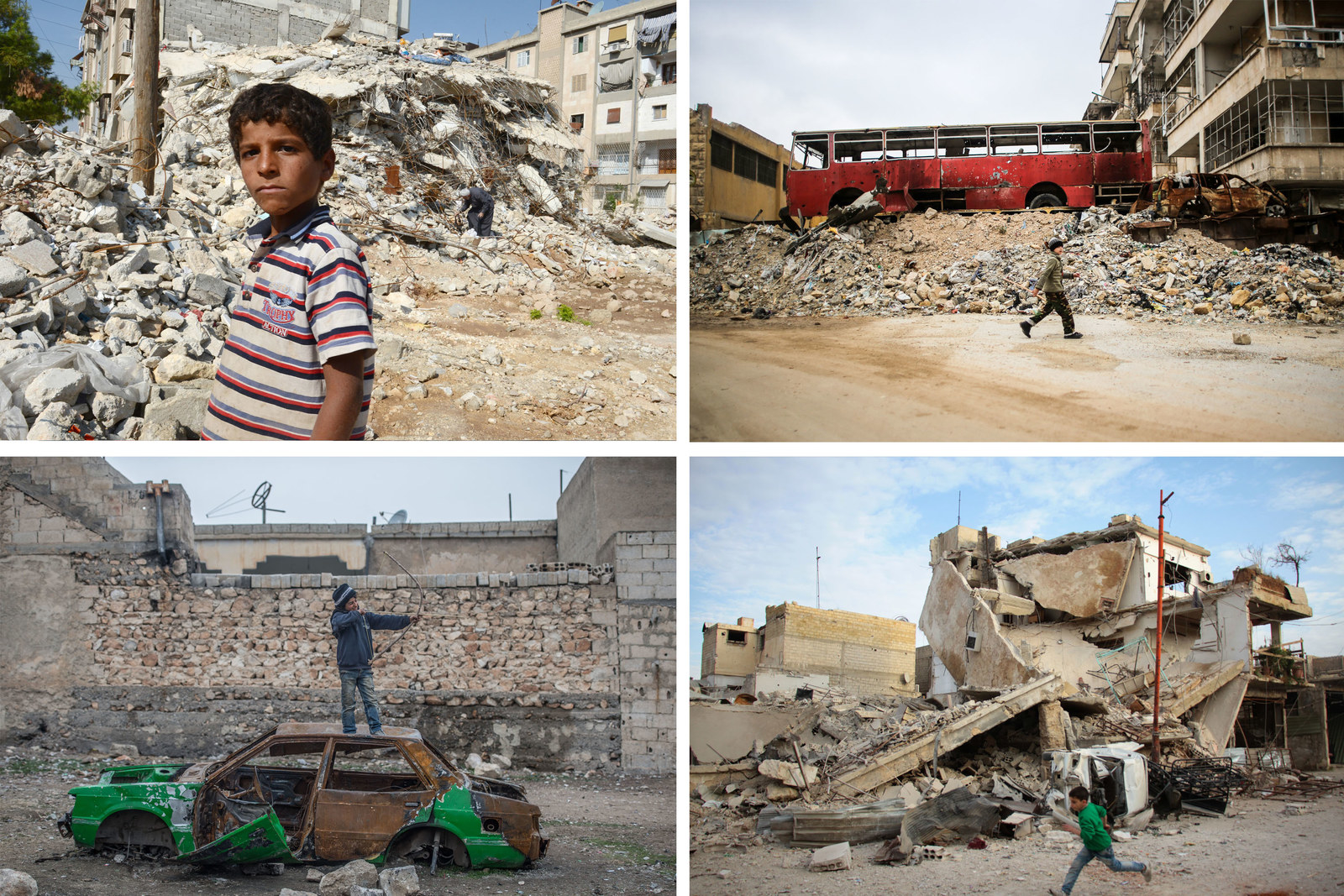
"I think the world is frustrated by the actions of the major powers," said Salwa Aksoy, vice president of the National Coalition of Syrian Revolution and Opposition Forces. "The struggle has lasted so long, and the scale of the war crimes has reached a level where there is just too much pain for the international community to look at it,” she told BuzzFeed News in an interview on the sidelines of a press conference in Istanbul in February.
In an attempt to cut through the violence of the repeated images and provoke action, UNICEF released a “blank” statement at the end of February.
“No words will do justice to the children killed, their mothers, their fathers and their loved ones " " " " " ." @UNICEF is issuing this blank statement. #ChildrenUnderAttack #RunningOutOfWords #Syria
Juliette Touma, UNICEF’s regional chief of communications for the Middle East and North Africa, said her organization had “issued hundreds of statements, news notes.”
Speaking to BuzzFeed News over the phone from Amman, Jordan, Touma struggled to articulate what the UN — and perhaps aid agencies more generally — could do next. “All of our calls to protect children inside Syria have gone unheeded,” she said.
“People are genuinely upset, if not angry or outraged, about what is happening now in Syria. For that I have no doubt about,’ she said. “There is, however, a certain element of fatigue among people about the suffering and the continuous horror stories. I think a lot of people feel helpless over what is happening and not being able to stop the bloodshed in Syria.”
Meanwhile, for many casual readers and viewers Syria is the same picture, same story, same situation as it was seven years ago.
“Watching it every day it just never stops, it never changes,” El-Katatney said. “It is just saturation. It’s desensitization, it’s numbness, it’s paralysis.
“I feel like if I have been doing this for years and years, and I have had millions watch and witness, but everything still remains the same.”
She is left asking: “What kind of ways can we cover Syria that we haven’t done a thousand times before, whether it is with footage or with the scripting? And sometimes we fail. Sometimes there just really is nothing.”
For Adam, messaging from a rooftop elsewhere in Ghouta, he could see the people not retweeting his stories, but he could also hear the shelling continue. “Today, like always bombing, airstrikes, and people killed. Like every day,” he said.
“But no one cares.”
Borzou Daraghi also contributed to this report.
